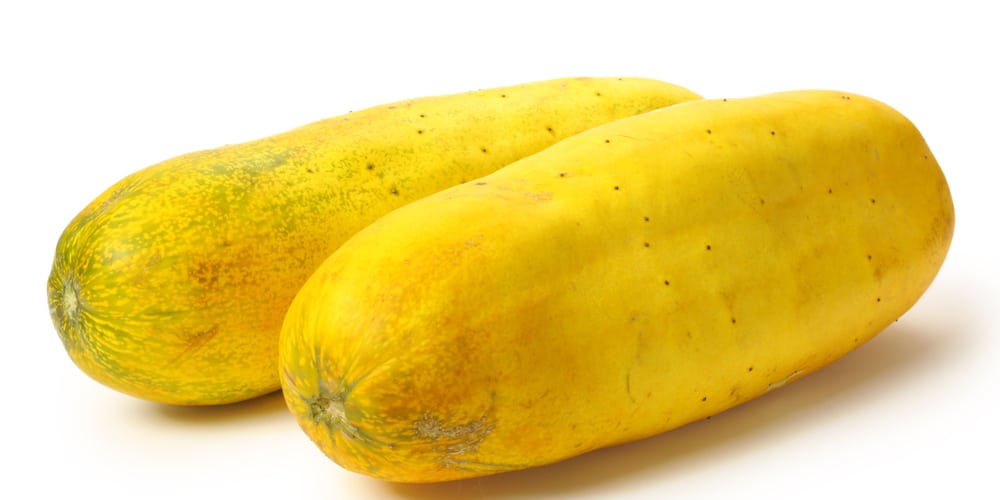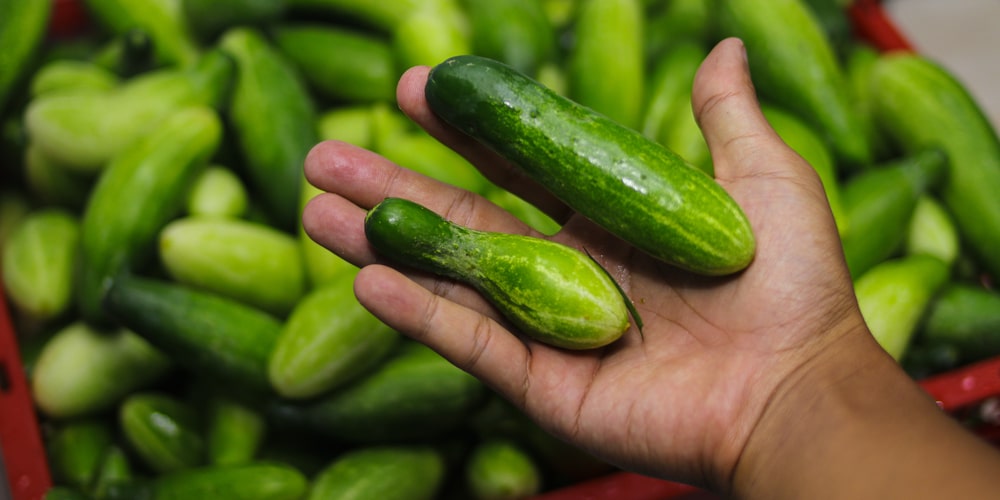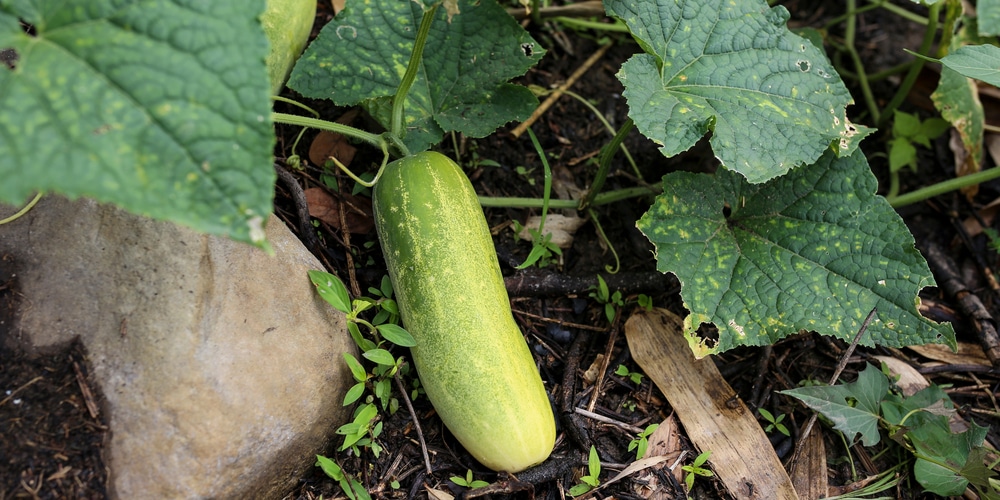One of the best things about growing a vegetable garden is enjoying its fruits. You’ll learn that homegrown veggies taste nothing like those you purchase at the supermarket. But what if your plant starts producing yellow cucumbers? Is there something you are doing wrong? And, more importantly, can you eat a yellow cucumber?
The superior flavor and texture are worth all of the time spent in your garden! Plus, the feeling of finally harvesting your plants is something you’ll know only when you experience it.
Even if sometimes taking care of your garden might feel overwhelming, you should trust the process!
But growing cucumber plants takes time, patients (and some money). You must ensure you plant varieties that grow well in your garden and thrive under your region’s climate.

Can you eat a yellow cucumber?
If you have the conditions to grow cucumbers in your yard, you should consider doing it. These vegetables fall under the category of melons, squashes, and pumpkins. Some are naturally yellow while other are yellow because they aren’t yet ripe or have been left too long on the plant.
They develop on vining plants that need plenty of room to grow. But if you need to optimize space, you can train them to grow vertically: use a support structure to give your plants the “shape” you prefer.
You are in the right place to find answers to all of these questions! Here, we collected everything you should know about cucumbers turning yellow (and what you can do to avoid that from happening).
Cucumbers Turning Yellow: What You Must Know
It isn’t as uncommon as you think to get yellow cucumbers. One of the most common reasons is waiting too long for your harvest.
Pick your vegetables when they are ready: don’t think they will grow more! As a cucumber matures and goes through its growth stages, its deep green color fades, turning into a bright yellow or orange. Doing so will give you lower quality crops, but it can also limit the production of more fruits.
Instead, regularly harvest your plants to boost fruits. Most cucumbers will be ready to harvest about ten days after pollination. Depending on your variety, you might get fruits between 50 and 70 days after planting. Remember that ripe cucumbers should feel firm.
Also, you might be giving too much water to your plants. Overwatering cucumbers can kill the plants and give you yellow crops.
It might remove essential minerals from the soil, making your cucumbers grow yellow. Of course, there are yellow varieties such as the Lemon Yellow and the Yellow Submarine. But if you haven’t planted one of them, you should take measures to have your plants produce healthy harvests.
Don’t give your plants more than 2 inches of water during the hottest season, and reduce the quantity to one inch for the rest of the year.
Don’t forget that cucumbers have shallow root systems: they love moisture but don’t do well in soggy soils. To prevent root rot (and yellow cucumbers), give water to your plants deeply but infrequently. Also, ensure you protect them from heavy rains.
Another reason your plants might produce yellow cucumber is inadequate nutrition in the soil. Use a balanced fertilizer to ensure your veggies get all they need to thrive.
You can also add compost or other organic materials to improve the nutrient content. Only fertilize your plants during the spring and avoid overdoing it: follow the instruction you find on the product’s label.
A lack of pollination might also lead to the production of yellow cucumbers. If you notice your fruits have smaller ends than the rest of their bodies, you might have pollination problems in your yard.
Consider adding suitable companion plants to attract beneficial insects to your garden. You can plant flowering species: Zinnias, Black-Eyed Susans, and Sunflowers are great choices. Also, (if you can) avoid using pesticides in your garden: it might kill bees and other helpful pollinators.
Finally, viral diseases can also cause yellow cucumbers. The virus can also distort leaves, which won’t function normally, causing the plant to stop growing. The result will be small and stunted cucumbers.
Can you Eat a Yellow Cucumber? Conclusion
The truth is that even if your plants produce yellow cucumbers, you shouldn’t throw away your harvests. However, these fruits will taste bitter and have a mushier texture.
If the problem is that you waited too long before harvesting, you can use them to make cucumber relish: you can mask the bitter taste using pickling ingredients.
But if the issue was a viral disease, you’ll be better off throwing them away. If you can, you should prevent your cucumbers from turning yellow: follow the recommendations we included in this essential guide.
Related Article: Growing Cucumber in FL

